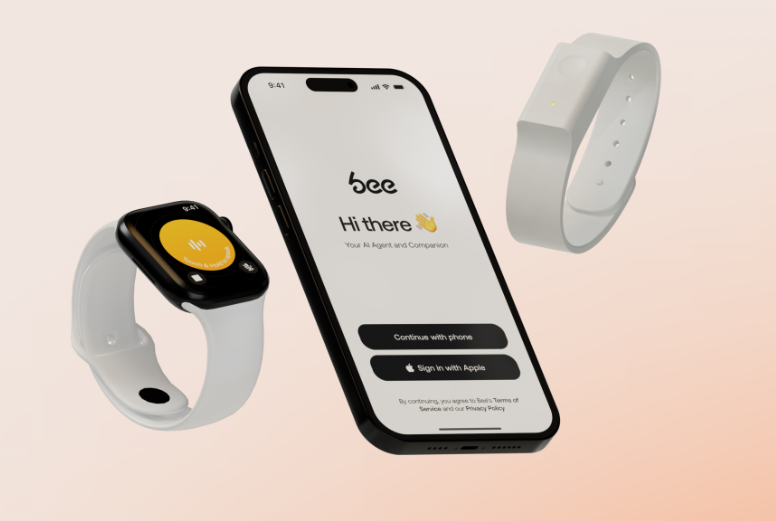Recently, Amazon announced the acquisition of the artificial intelligence wearable startup Bee. This news was posted by Bee's co-founder Maria de Lourdes Zollo on LinkedIn, and Amazon later confirmed the acquisition to TechCrunch, although the transaction has not been completed yet.
Bee was founded last year and successfully raised $7 million. The company launched a standalone bracelet priced at $49.99, similar to Fitbit, and also developed an app for Apple Watch. This product records sounds around the user unless manually muted, aiming to generate reminders and to-do lists by listening to users' conversations.
Zollo stated in an interview with TechCrunch last year that Bee aims to create a "cloud phone," essentially a mirror of a phone, allowing personal Bee devices to access users' accounts and notifications, thus providing activity reminders and sending messages. Bee claims on its website: "We believe everyone should have a personalized ambient intelligence, which is more like a trusted companion, helping users reflect, remember, and live more freely."

Although companies like Rabbit and Humane AI have also attempted similar AI wearable devices, they have not achieved significant success. However, Bee's device, with its affordable price of $50, has attracted consumers who are unwilling to make large investments. In contrast, the Humane AI Pin costs as much as $499, which is obviously off-putting.
An Amazon spokesperson said that Bee's employees have received invitations to join Amazon. This acquisition marks Amazon's strong interest in developing AI wearable devices, which differs from its previous voice-controlled home assistant products such as Echo. Additionally, OpenAI, the developer of ChatGPT, is also working on its own AI hardware, while Meta and Apple have integrated AI technology into smart glasses respectively.
However, products like Bee also raise concerns about privacy and security, as they record sounds around the user. Different companies have varying policies on how to handle, store, and use recordings. Bee states that users can delete data at any time, and it does not save or store recordings or use them for AI training. However, the app will store data that the AI learns from users to better serve as an assistant.
Bee previously stated that it plans to only record sounds that have been agreed upon by others and is developing features that allow users to set boundaries based on topics and locations, automatically pausing the device's learning. However, it remains unknown whether these privacy policies will change after Bee is integrated into Amazon, given Amazon's questionable track record in handling user data.
